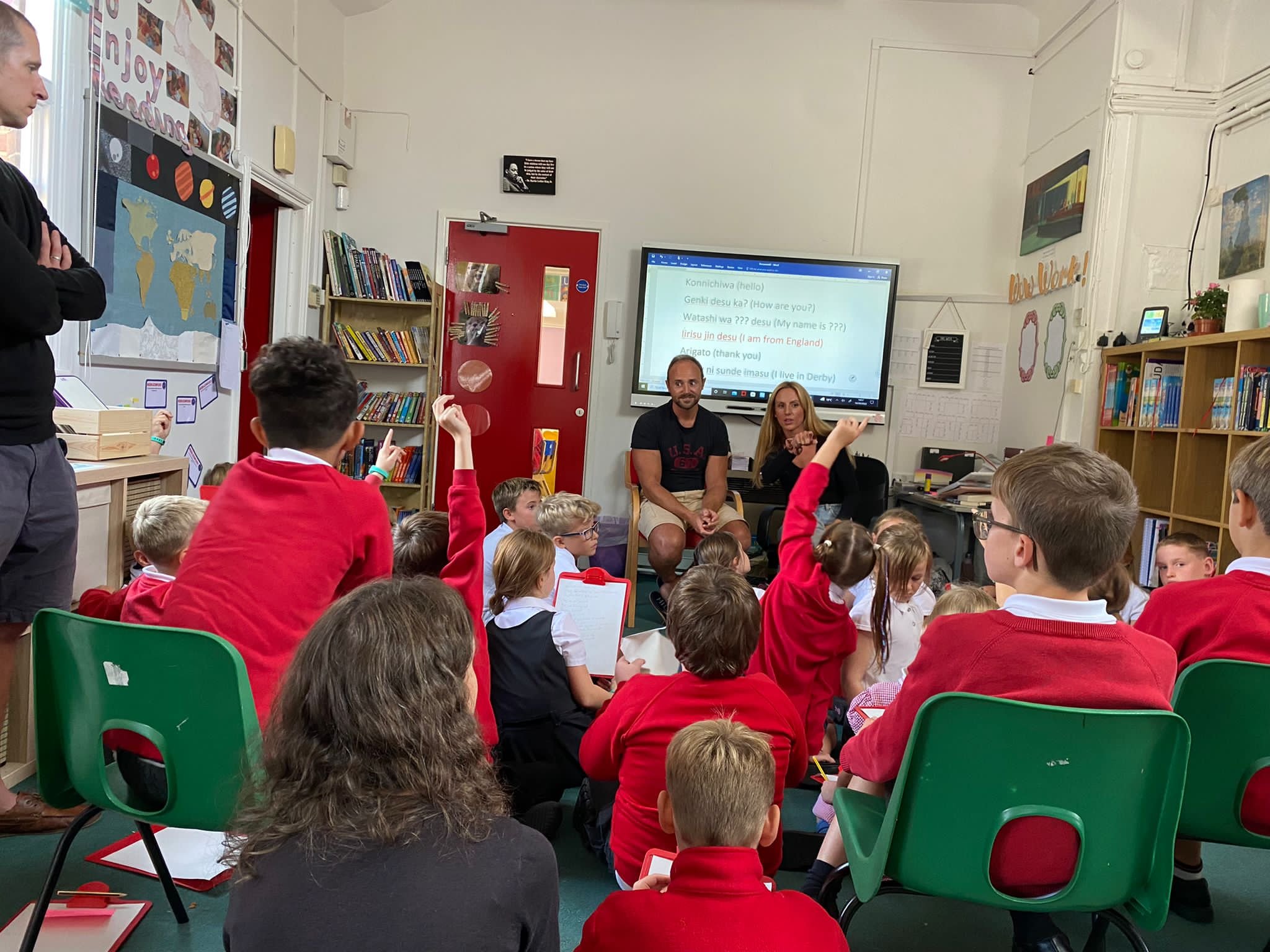
personal, social, health & economic (PSHE) education
We believe that every person holds a unique and intrinsic value regardless of their background. Therefore, our children’s personal, social, health and economic education is an important and necessary part of their journey through school. We aim to help children to understand how they are developing personally, socially and emotionally, while equipping them with the knowledge, experience and skills necessary to grow up happily and contribute to life in modern Britain.
Our PSHE offer has been comprehensively reviewed and optimised to make sure we meet the new statutory 2020 requirements for compulsory Relationship and Health Education in Primary Schools. Both of these areas are taught through a comprehensive programme of study for PSHE. Primary schools have the can decide whether pupils are taught sex education or not. Following a process of parental consultation (see questionnaire responses in PSHE Policy), staff and governor discussion and our knowledge of our children, we have made the decision to teach the statutory elements of sex education through the Science curriculum. Our PSHE Policy is available here.
Intent
We believe that every person holds a unique and intrinsic value regardless of their background. Therefore, our children’s personal, social, health and economic education is an important and necessary part of their journey through school. We aim to help children to understand how they are developing personally, socially and emotionally, while equipping them with the knowledge, experience and skills necessary to grow up happily and contribute to life in modern Britain. We provide opportunities for our children to learn about rights and responsibilities and appreciate what it means to be a member of a diverse society. Our school community is tight-knit and very nurturing; everyone is encouraged to develop a sense of self-worth by playing a positive role in school life and the wider community.
Our PSHE curriculum intends to develop the children by teaching them how to stay safe and healthy, build and maintain successful relationships and become responsible, active citizens. By covering social and emotional aspects of learning, children can develop their identity, confidence and self-esteem in a safe, nurturing environment.
PSHE/SMSC is the heart of our school’s ethos and is fundamental to developing young people with positive attitudes and well-rounded members of society. By teaching PSHE/SMSC, we intend to impart pupils with the knowledge, understanding, confidence, attitudes, values and skills they need in order to reach their potential as individuals and within the community as well as knowing how to keep themselves safe.
Implementation
At Mugginton we follow the Twinkl Life PSHE Curriculum which provides a whole-school approach to building these essential foundations – crucial for children to achieve their best, academically and socially. Twinkl offers a spiral curriculum, which ensures progression in knowledge, attitudes and values, and skills – including the key skills of social and emotional learning. Mapped to the PSHE Association programmes of study, Twinkl provides a framework consisting of lesson plans, online planning, resources and assessment tools, allowing the school to embed a comprehensive PSHE and Wellbeing programme throughout the school. We also have access to the Derbyshire PSHE scheme, PSHE Matters, and use this to compliment some of the units and provide a broader pool of teaching ideas and activities.
Twinkl Life’s PSHE units are delivered in a creative manner, using approaches such as role play, discussions and games. They are taught in thematic units which consist of six lessons, delivered in a spiral curriculum that revisits each theme every two years. This enables children to recall and build upon previous learning, developing a rich experience, vocabulary and understanding of the different aspects.
There are 3 main strands; Health and Wellbeing; Relationships and Living in the Wider World. Within these strands are 4 different units. At Mugginton, we teach 2 units from each strand throughout the academic year, ensuring coverage of all strands over a 2 year cycle.
1. Health and Wellbeing:
Safety First, It’s my body, Growing Up, Think Positive
2. Relationships:
TEAM, VIPs, Be Yourself, Digital Wellbeing
3. Living in the Wider World:
Money Matters, One World, Diverse Britain, Aiming High
As with all our teaching, we maintain an element of flexibility, responding to our children’s needs and events that may unexpectedly occur and need addressing. For example, during online teaching during the 2021 Covid Lockdown, the PSHE lead made the decision to teach the Think Positive unit, rather than the One World Unit as planned. This was to try to help pupils cope with, and work through, the unforeseen changes and anxieties brought about by a global pandemic.
In addition to PSHE teaching in the classroom, children are also offered a two-day residential visit in Key Stage 2 where there is a particular focus on improving confidence, team work skills and self-esteem. Pupils are also given opportunities to develop leadership and co-operative skills. These skills are further consolidated through our weekly visits to the forest in our Forest Friday sessions.
At Mugginton, we offer a wealth of extra-curricular activities and ensure that all pupils are given equal opportunities to access these. There is a diverse offer for our pupils which allows all talents and abilities to be celebrated giving opportunities for children to aspire to be the best they can be. In addition to these additional opportunities, the delivery of PSHE allows pupils to develop the key skills underpinning Mugginton’s Curriculum to provide opportunities for whole school outcomes and enterprising events.
We believe that nobody should be discriminated against in terms of the 9 protected characteristics in the Equalities Act 2010.
With this belief in mind, our curriculum is further enriched by planned in workshops and visitors as well as adapting to the needs of our pupils each term. For example, we have had visits from nurses, police officers and the fire service and representatives from the NSPCC. Wider initiatives we participate in include:
· Autism Awareness & Acceptance Week
· Bikeability training
· Weekly runs and walks
· Anti-Bullying Week
· Safer Internet Day
· Comic Relief
· Children in Need
· World Mental Health Day
· International Women’s Day
· Religious Festivals and Celebrations
Teachers deliver the PSHE curriculum in a way that allows pupils to explore varying viewpoints by ensuring that information is unbiased and impartial. Potentially sensitive questions from pupils within lessons will be answered by teachers in a factual way. Pupils will be able to ask questions anonymously through use of an ‘ask it basket’.
Children are supported in applying the skills they are learning, in real life situations as they arise: e.g. resolving conflicts; working as part of a group on a project and sharing their thoughts on a school matter to a wider group. They are encouraged to take part in a range of practical activities to promote active citizenship, e.g. charity fund-raising; the planning of special events at school; making class rules; school council meetings; and by taking on roles of responsibility for themselves, for others and for the school.
This curriculum is further boosted by Circle Times, daily collective worships, revisiting our golden rules and the British Value. In addition to promoting a warm, welcoming and family environment in which all staff model being kind, respectful and working hard to be the best they can.
At Mugginton, we offer a variety of additional support for children who are struggling with the Social and Emotional areas of learning. We have highly skilled members of staff who work alongside our Special Educational Needs Coordinator (SENCO) to support children with their social, emotional and mental health. Tailored interventions using the Boxall Profile and the Zones of Regulation curriculum are offered to children in need of additional support.
Impact
We aspire for all our children to be global citizens and contribute positively to their local community and in all walks of life. To achieve this, three key areas have been identified:
1) Emotional literacy – (Self-awareness, social skills, empathy, motivation, managing feelings)
2) Responsibility – (Personal responsibility, responsibility towards others, relationships, world of work, staying safe, health)
3) Resilience – (Developing strategies for resilience, ambition, personal best, managing emotions)
Therefore, in evaluating the effectiveness of our PSHE/SMSC teaching, we ask the following:
Do pupils understand the world they live in?
Do pupils understand what makes them special and unique?
Are pupils aware of how their life is similar and different to others from another culture?
Can pupils set goals and understand steps they need to take to meet their goals?
Do pupils understand how to look after their physical and mental health?
Do pupils know what a healthy and unhealthy relationship looks like?
Do pupils know how to manage their feelings both positive and negative?
Do pupils understand the changes their bodies are going to experience?
Do we create an environment which allows pupils to influence their learning journey?
Do we ensure that children are able to work collaboratively?
At Mugginton Church of England Primary School, the teaching of PSHE/SMSC curriculum has been carefully considered to enable our pupils to become healthy, happy and positive global citizens. Our children’s well-being is our highest priority.

Further advice is available here:













